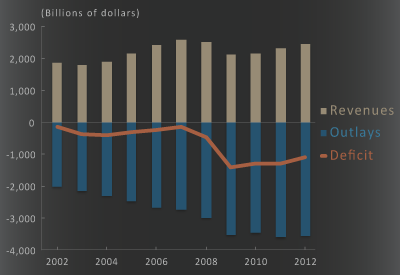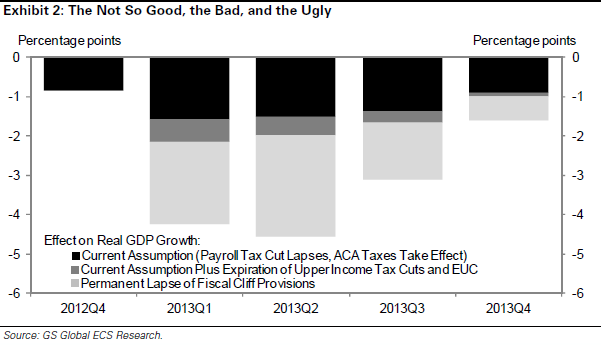A number of commenters raised a good and fair question re my last post, which points out that President Obama's $4 trillion in deficit savings over 10 years are real. Jess says this is not the time for cuts and foosion asks:
How does cutting the deficit, let alone figuring how to count it, address any of the real problems facing this country? The spending cuts that are part of every widely circulated plan just make the problems worse.
I agree and have consistently said and documented as much. In a town of deficit hawks, I'm among the doviest (the lovey/doviest?) -- in fact, from a piece earlier this week about these very cuts in non-defense discretionary spending, I wrote:
What is so damn great about cutting the heck out of non-defense discretionary spending? Clearly, we want to evaluate their effectiveness, but in an age of increased inequality and diminished opportunity and mobility among the least advantaged, many of the programs in this category should be expanded (help with college assistance, Head Start, job programs and job training). Simply cutting for the sake of optics without regard to social need and economic context is not the way forward.
And Jess is of course correct about the current moment, when elevated unemployment and barely trend GDP growth militates more fiscal stimulus, not less. Another endlessly repeated theme of mine around here is that absent more demand-side fiscal stimulus, the Fed's interest rate actions will have limited traction. More on that in a moment.
But I can sum up my view on this in one word, and I humbly submit that this should be your view too (I know -- that's not something you can "humbly" submit): dynamics. This, in a word, is was what Keynes brought to economics and it's what people who fail to understand deficit economics -- that's most everyone -- don't get.
There's a time for larger deficits and a time to be moving toward budget surplus. We want and need cyclical budget deficits to offset slumps; we do not want structural budget deficits that get larger when the economy hits its expansionary stride, which it has not as of yet.
Too many budget hawks think we always want to be reducing the budget deficit, regardless of underlying economic conditions. They look at the first figure below from CBO (sorry about the weird color scheme... whassup with that Doug E?), showing the budget deficit slowly shrinking since 2010 and think "good, but it should be shrinking a lot faster." I look at it and see why we're stuck where we are.

Source: CBO
Then I look at this next figure from GS researchers showing the percentage growth points shaved off of GDP from cuts that are either baked in the cake or being prepared by our dysfunction bakers in the Congress... and get very worried.

Source: Goldman Sachs Researchers
But at the same time, I know that once we're finally out of this mess, we need to get on a sustainable budget path. Yes, over the longer term that's a health-care-costs story, but it's also a revenue and spending story and I'm perfectly happy to see budget plans, like the President's, that stabilize the debt in the ten-year window.
So, in answer to the titular question of this post, I'm both -- a deficit dove when we're down and hawk when we're up. And I hope you'll share these dynamic flight patterns with me.
This post originally appeared at Jared Bernstein's On The Economy blog.
